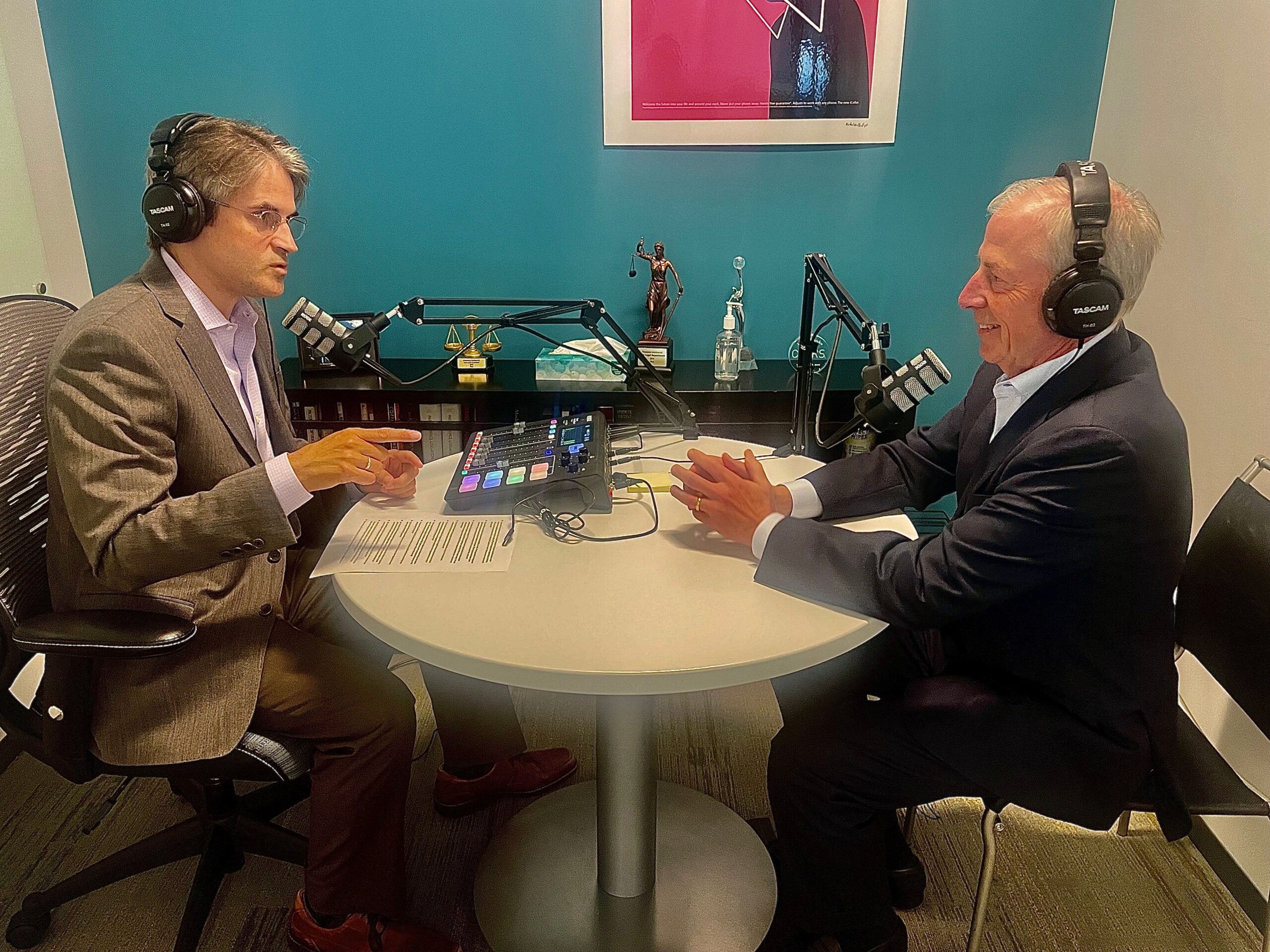Dear reader,
Welcome to the latest edition of The Forum File. In this edition, we are sharing our firms’ efforts to remove economic barriers in underserved communities.
We hope you enjoy reading this edition and please do not hesitate to share your feedback.
Kevin Fromer, President and CEO, Financial Services Forum
Penny for Your Thoughts
Heather Higginbottom is the Co-Head of Global Philanthropy and Head of Research and Policy at JPMorgan Chase
Tell me about the goals and strategy for the JPMorgan Chase PolicyCenter?
We established the JPMorgan Chase PolicyCenter in 2019 to advocate for nonpartisan, data-driven ideas to help us further our overarching goal of promoting inclusive economic growth around the world. To do this, the PolicyCenter creates innovative partnerships, identifies gaps in research, and fosters an actionable policy dialogue among key academic, nonprofit, and business partners. Many of the policies on which it focuses are related to the firm’s pillars, including Business Growth and Entrepreneurship, Careers and Skills, Neighborhood Development, and Financial Health. I’m really proud of how the PolicyCenter has evolved over the past four years to tackle pressing issues. For example, during the pandemic, the PolicyCenter supported comprehensive reforms to improve affordable rental housing and homeownership, including expediting the execution of better targeted rental assistance, incentivizing eviction reforms that improve outcomes for tenants and landlords, and building on COVID-19 protections that support homeowners.
Why is a skilled workforce critical to U.S. economic competitiveness, and what is JPMorgan Chase doing to help close the skills gap?
We know that a good job is foundational to unlocking economic mobility and can have a multiplying effect in our communities, but access to these opportunities is often out of reach for too many workers. To meet this challenge, in 2019, we launched a $350 million, 5-year global initiative to develop, test, and scale innovative efforts that prepare individuals with the skills they need to be successful in a rapidly changing economy. Looking ahead, the private sector has an important role to play in advancing “earn and learn apprenticeships,” which combine paid, on-the-job training and mentorship with formal classroom or online instruction to help individuals master the knowledge, skills, and competencies they need for career success. A prosperous and inclusive job market is the basis of a strong economy, which is why it is imperative for companies like ours to transform how we prepare people to compete for well-paying jobs and successful careers.
How does JPMorgan Chase take its work to close the skills gap into historically underserved communities?
We are committed to helping create economic mobility and career pathways by building durable partnerships between local school systems, colleges and universities, education and workforce development agencies, and employers. For example, through the Advancing Black Pathways and Advancing Hispanic & Latinos initiatives, we support economic success for Hispanic, Latino, and Black communities at a global scale. We have also committed $1 million in philanthropic capital to Hispanic-Serving Institutions (HSIs) and related professional associations and intermediaries. These commitments are put toward programs that enhance student support systems at HSIs as well as connect students and their families with the resources they need to complete higher education and access quality career pathways.
Value Add
JPMorgan Chase’s investment in Detroit

When the city of Detroit filed for bankruptcy in 2013, times were hard: half of the city’s street lights were out, a third of buses were sitting in garages, and only eight ambulances operated across the entire city. JPMorgan Chase had been doing business in Detroit since 1933 and seen this struggle firsthand through its employees, clients, and customers who lived it. But in this challenging moment, the company saw an opportunity to collaborate with the government, other businesses, and community leaders to revitalize the city.
That collaboration laid the groundwork for what has culminated in a $200 million commitment in Detroit focused on skills training and job creation, increasing access to affordable housing, growing small businesses, and planting the seeds for financial security for more Detroiters. Beyond JPMorgan’s business and philanthropic capital, its employees apply their skills and expertise to help ensure that the city’s economic turnaround creates lasting opportunity for its residents.
Through its support for the Entrepreneurs of Color Fund, JPMorgan Chase helped small business owner and local developer Marcus Jones revitalize his community in the McNichols neighborhood. There Jones and his partner launched the Detroit Training Center (DTC) to provide vocational training and certifications to local residents. As DTC grew, it worked to offer training and certifications to veterans and the homeless.
As part of its ongoing investment in Detroit’s recovery and commitment to supporting local developers, JPMorgan Chase has also supported Capital Impact Partners to launch the Equitable Development Initiative (EDI), which mentors early- and mid-career underrepresented developers, such as Jones. In four years, over 200 local developers have been trained by the EDI.
In 2022, Jones opened the Detroit Pizza Bar, and it became the first sit-down restaurant in the McNichols neighborhood in 40 years. The development for the pizza restaurant hired workers trained by Jones through his workforce development programs for renovations. And, when the restaurant was ready to open, Jones hired people who lived within a two-mile radius, prioritizing those who might not be able to afford a car. He also reached out to public and culinary schools to train his employees in all aspects of the business so his employees could leave with even better resumes.
The Detroit Pizza Bar became more than just a place to grab a slice, but an example of how intentional community development is vital for economic growth and opportunity in a community like Detroit.
Capital Gains
What we’re doing in Washington

Forum President and CEO Kevin Fromer joined “Banking with Interest” host Rob Blackwell to discuss how increasing bank capital requirements would push activities outside the regulated banking sector and harm consumers, businesses, and the U.S. economy’s competitiveness. “You have to go back to the why — why do you need to constrain banks and their customers?” Fromer said. “There are real world impacts of these decisions.” Listen to the full interview here.
The Forum, with five other trade associations, wrote a letter to the U.S. banking agencies calling for a re-proposal of the Basel capital rule, noting that “the proposed rule repeatedly relies on data and analyses that the agencies have not made available to the public. This reliance on non-public information violates clear requirements under the Administrative Procedure Act that agencies must publicly disclose the data and analyses on which their rulemaking is based.”
The Forum highlighted how higher capital requirements would negatively impact households, businesses, and the overall U.S. economy.
The Forum also joined with 26 other trade organizations to send a letter to U.S. Securities and Exchange Commission Chair Gary Gensler regarding the agency’s Safeguarding Advisory Client Assets proposal, highlighting the negative impacts of the proposal on investors, market participants, and the financial markets.
Our Two Cents
Research from the Forum
The Forum launched a new blog series, Capital Insights, to improve transparency and promote discussion on the proposed capital requirements. Our Chief Economist and Head of Policy Research, Sean Campbell, highlighted how the role of capital requirements would impact:
- small businesses by making lending more costly and less available.
- the cost of market making and how it would further strain market liquidity.
Checking the Balance
Members in the News
Bank of America awarded a $1 million grant for the development of the National Juneteenth Museum in Fort Worth, Texas. “The bank’s foundational support acknowledges the significant role Juneteenth plays in our city’s history and is another demonstration of our commitment to advance economic opportunity and racial equality,” said Mike Pavell, Bank of America Fort Worth President.
BNY Mellon announced its investment of $10 million with Lafayette Square, an investment firm that seeks to create opportunities to support people and communities in low-to-moderate income areas while generating positive returns for investors. BNY Mellon’s contribution will fund Lafayette Square’s flagship investment strategy, which aims to deploy over 51 percent of invested capital in underserved areas or to borrowers who provide substantial employment to low- and moderate-income individuals.
Citi announced a new agreement with the International Finance Corporation (IFC) to launch a $300 million facility pilot under IFC’s newly established Global Supply Chain Finance Program. The initiative will help boost supply chain finance in emerging markets by providing affordable financing options for buyers and suppliers and by creating new opportunities for small and medium enterprises across the globe.
Goldman Sachs announced a $100 million investment in rural communities across the country, deepening its support for small businesses. The new initiative is an extension of Goldman Sachs’ 10,000 Small Businesses program, which has served over 14,000 businesses across the U.S. for more than a decade by providing access to education and capital. The initiative will reach rural small business owners in 20 states in the next five years.
JPMorgan Chase announced more than $7.5 million in philanthropic commitments to three nonprofits to improve housing affordability and stability in Washington D.C. In addition, the firm is expanding its Chase Home Lending program, making $5,000 homebuyer grants available in more majority Black, Hispanic and Latino neighborhoods in D.C. The commitment is part of JPMorgan Chase’s five-year commitment to improving housing for the underserved.
Morgan Stanley’s Global Sports & Entertainment Division announced the launch of Money in the Making, a digital financial education program for the next generation of athletes, entertainers, sports and entertainment professionals and emerging talent. The program aims to provide these individuals with the financial education, tools and resources needed to build and manage wealth.
State Street partnered with five diverse firms to underwrite $1.5 billion of senior unsecured debt. This marks State Street’s ninth consecutive debt offering and is consistent with State Street’s inclusion, diversity, and equity efforts.
Wells Fargo launched the Homebuyer AccessSM grant to help bridge the homeownership gap in underserved communities. Wells Fargo Home Lending will offer $10,000 Homebuyer Access downpayment grants to eligible homebuyers in eight metropolitan areas. This offering under the bank’s Special Purpose Credit Program is part of Wells Fargo’s efforts to help drive economic growth, sustainable homeownership, and neighborhood stability in minority communities.
